Wellness is no longer about just green juice and yoga classes—it’s evolved into a vibrant, multifaceted movement that incorporates everything from sleep science to mental health rituals. With new trends flooding the space every day, it’s hard to sift through the noise and find what’s genuinely transformative. Here’s a curated list of the wellness trends worth adding to your routine. Forget the gimmicks, these are grounded in science, practicality, and personal well-being.
1. Sound Healing To Calm Your Mind

Sound healing might sound unconventional at first, but its roots run deep in ancient traditions and modern holistic wellness. This practice harnesses specific frequencies and vibrations—delivered through instruments like gongs, singing bowls, and tuning forks—to help restore balance and promote relaxation. The idea is that these sound waves interact with your body’s frequencies, encouraging a state of calm and helping to regulate the nervous system. As described by The Guest House, sound healing can be a powerful tool for calming the mind, releasing stored trauma, and fostering deep emotional healing by recalibrating the body’s natural rhythms and promoting nervous system balance.
The benefits of sound healing are increasingly supported by research and personal testimonials. For instance, a 2022 study found that sound healing sessions can significantly reduce symptoms of anxiety, depression, and stress, guiding brainwaves from an alert state into deeper, meditative frequencies. Instruments like Tibetan singing bowls and gongs are commonly used, and participants often report leaving sessions feeling lighter, more centered, and deeply relaxed. Even short, regular sound meditation practices—whether in a group or at home—can help you feel more grounded and connected to yourself, making sound healing a worthwhile experience if you’re seeking calm and mental clarity.
2. Forest Bathing For Deep Stress Relief
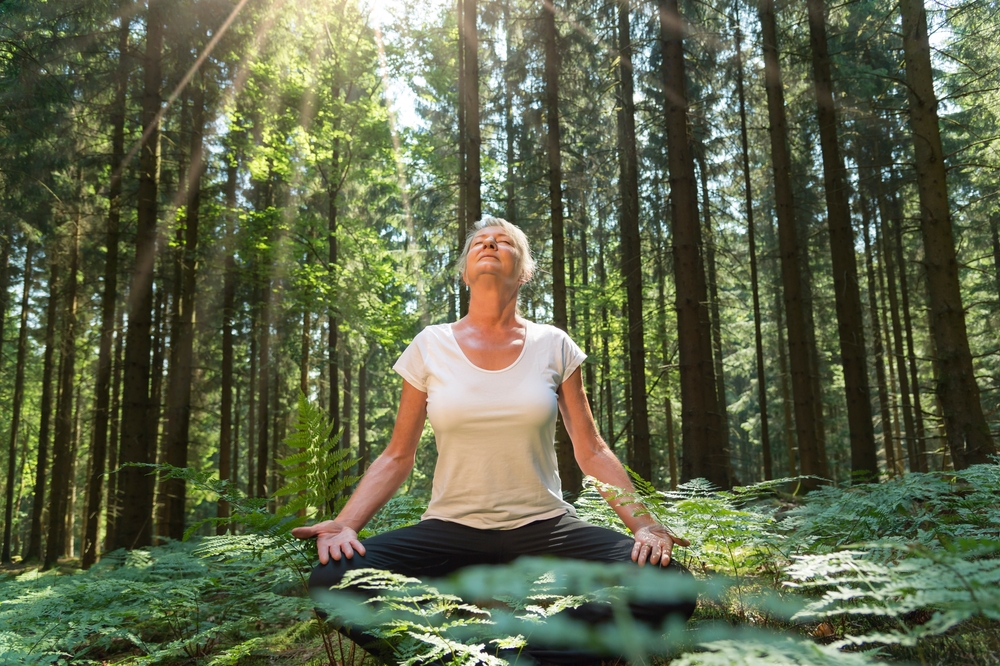
Nature is more than just a pretty backdrop to your outdoor runs—it’s a powerful stress reducer, especially when experienced mindfully. Forest bathing, or *Shinrin Yoku*, is the Japanese practice of immersing yourself in nature’s sights, sounds, and smells for a grounding experience. Studies show that spending time in nature can lower cortisol levels, reduce blood pressure, and improve mood, all while promoting relaxation. Forest bathing takes this to the next level by encouraging intentional, slow-paced walks that allow you to fully absorb your surroundings.
It’s not about speed or fitness, but about connection and presence. If you’re looking to recharge, this is the antidote to the chaos of everyday life. Ditch the headphones, leave the phone behind, and simply walk. It’s almost as if the forest has its therapy session to offer, where you can shed the tension of modern life, one step at a time.
3. Cold Plunges For Better Recovery
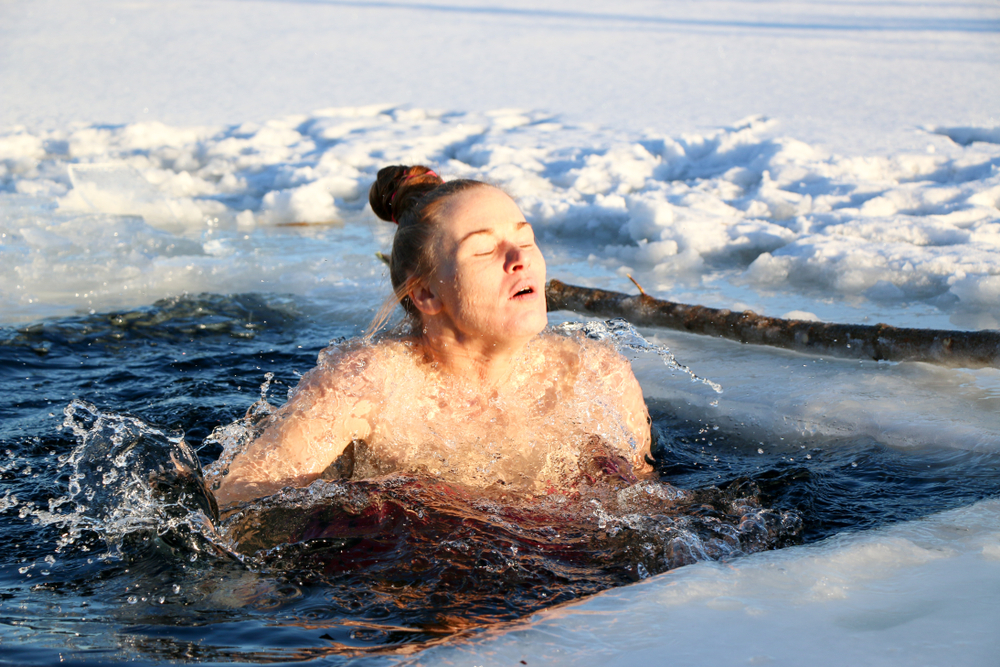
Cold plunges have moved beyond the realm of elite athletes and are now embraced by wellness enthusiasts for their impressive recovery benefits. Immersing your body in cold water, whether via an ice bath, plunge pool, or even a cold shower, can help reduce inflammation, speed up muscle recovery, and boost circulation. The physiological response to cold exposure—vasoconstriction followed by dilation—helps flush out metabolic waste, reduces muscle soreness, and is even linked to improved sleep quality and mental clarity. Many who adopt cold plunging into their routines report feeling more energized and focused throughout the day.
Scientific research by Frontiers in Physiology supports these claims, showing that cold water immersion after exercise can effectively reduce muscle soreness and accelerate recovery, especially when done for short durations (10–15 minutes) at temperatures below 15°C (59°F). These protocols are most effective for both immediate relief and longer-term muscle repair. Additionally, cold plunging can help regulate body temperature, which is essential for quality sleep, and stimulate endorphin release, contributing to deeper relaxation and better rest.
4. Adaptogens For Real Resilience
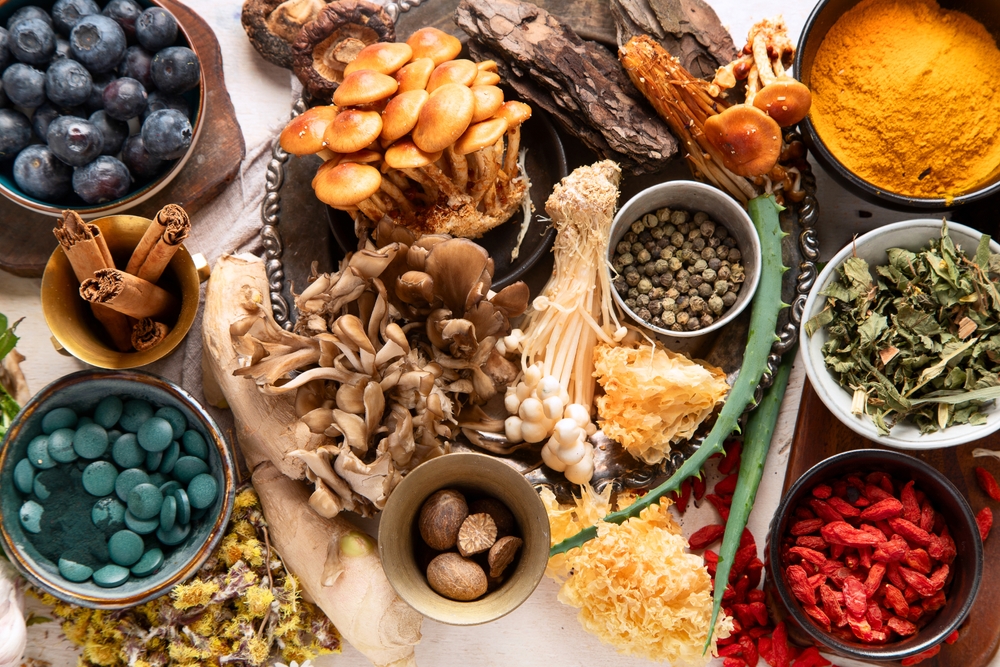
Adaptogens are herbs and mushrooms that help the body adapt to stress and restore balance. Think of them as your natural armor against the daily grind—whether it’s Rhodiola, Ashwagandha, or Reishi mushrooms, these powerhouses help combat fatigue, boost energy, and regulate mood. The idea is simple: these plants help your body’s stress-response systems work more efficiently, without the need for external stimulants. They’re like the sidekick your immune system never knew it needed.
What’s special about adaptogens is that they don’t just mask stress; they support your body’s ability to handle it over the long haul. Some people even say that adaptogens have helped them feel more grounded, energetic, and less anxious in the face of pressure. Whether in tea, powders, or supplements, it’s an easy way to integrate plant-based wellness into your life.
5. Sleep Optimization Beyond The Basics
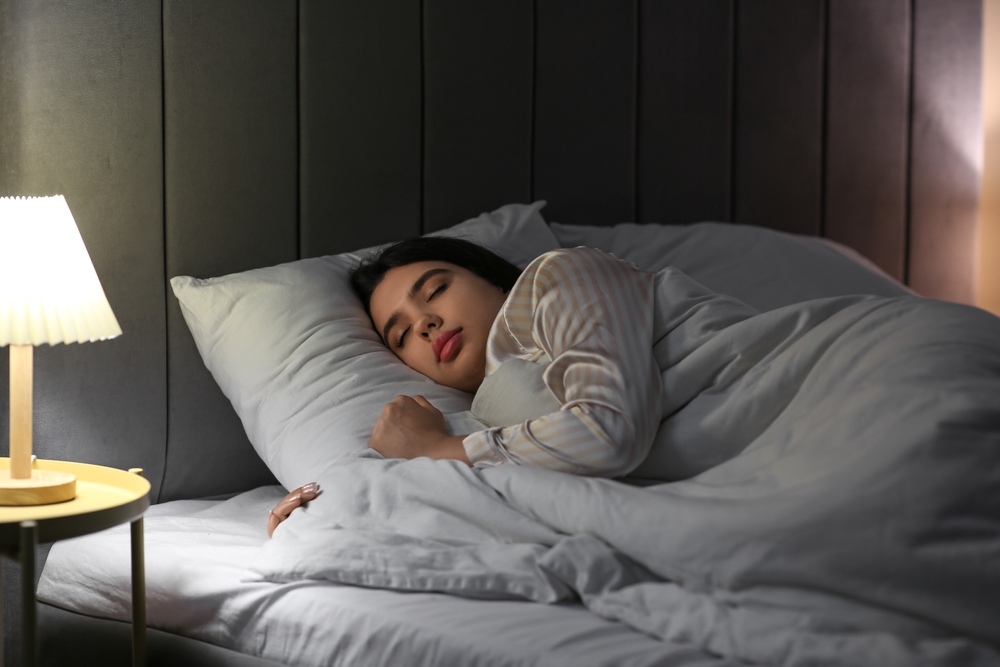
Sleep optimization goes well beyond simply logging enough hours in bed. While most people know the basics—like avoiding caffeine late in the day and keeping a consistent bedtime—there’s a growing emphasis on fine-tuning your environment and habits to truly elevate your rest. For instance, incorporating blue-light blocking glasses into your evening routine can help minimize the disruptive effects of screens, as these glasses are designed to filter out wavelengths that suppress melatonin production and interfere with your natural sleep-wake cycle.
Creating an ideal sleep environment is another cornerstone of advanced sleep hygiene. Blocking out ambient light with blackout curtains, maintaining a cool room temperature around 65°F (18°C), and reducing noise with white noise machines or soundproofing can all support deeper, more restorative sleep. As outlined by the Sleep Foundation, even small changes, like relaxing for 30 minutes before bed or disconnecting from devices an hour before sleep, can make a significant difference.
6. Mindful Eating For A Healthier Relationship With Food

It’s easy to fall into the trap of mindless snacking or eating in front of the TV, but mindfulness is transforming the way we approach food. Mindful eating is all about tuning into your body’s hunger cues, savoring each bite, and eating with intention. Studies show that this practice can lead to healthier eating habits, better digestion, and improved satisfaction with your meals. Instead of rushing through meals, you take the time to truly enjoy and appreciate what you’re eating—a process that helps you recognize when you’re full and more satisfied overall.
Mindful eating is also a powerful antidote to the guilt and stress often associated with food. Rather than obsessing over calories or labeling foods as “good” or “bad,” this approach encourages acceptance and awareness. It helps you create a healthier relationship with food, one that’s centered on nourishment rather than restriction. Experts at Harvard stated that mindful eating can decrease binge eating, promote a higher-quality diet, and foster a more positive, stress-free connection with what’s on your plate.
7. Gut Health As The New Wellness Frontier
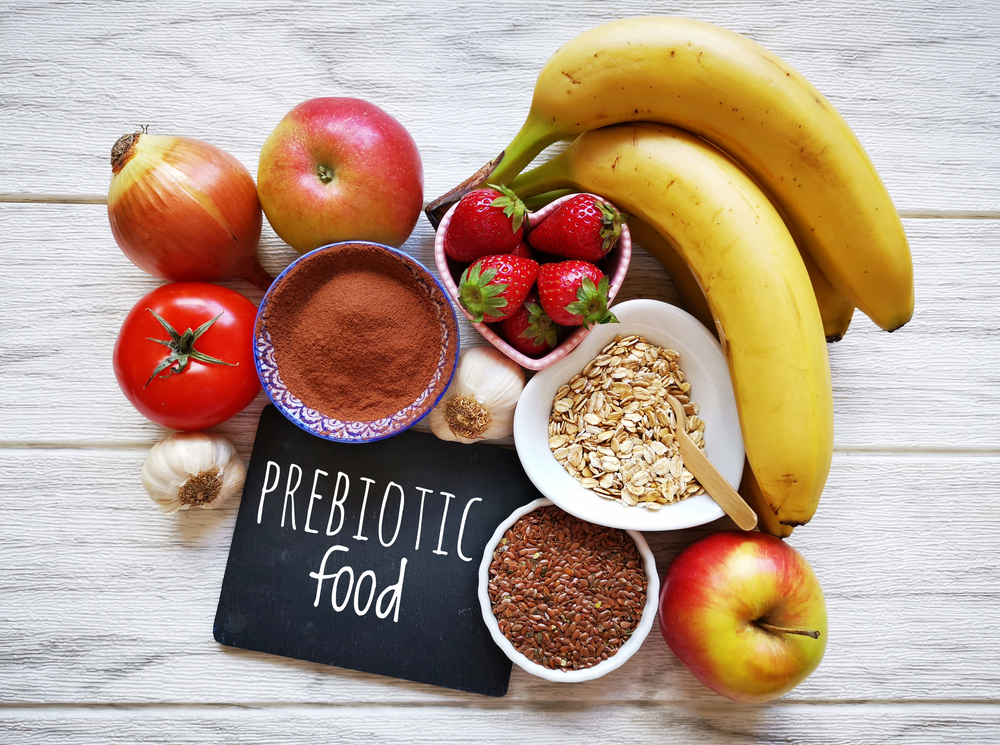
If you haven’t already heard, gut health is the wellness trend to watch, and for good reason. Our gut is home to trillions of bacteria that impact everything from digestion to mood to immunity. Fermented foods like kimchi, kefir, and kombucha are being hailed as gut-friendly foods that promote a healthy microbiome. As detailed by Healthline, the more diverse and balanced your gut flora, the better your body functions, from immune response to brain health.
Beyond just eating probiotics, experts are recommending fiber-rich diets that nurture gut bacteria. It’s about creating an environment that promotes healthy digestion and reduces inflammation. Fermented foods not only help restore the balance of bacteria in your gut, but they can also ease digestive issues like bloating and constipation and may even support immune function. Whether it’s through a dedicated gut cleanse or simply incorporating more fermented foods into your meals, focusing on gut health could be the key to unlocking your optimal wellness.
8. Digital Detox To Reconnect With Reality

In our hyper-connected world, the idea of a digital detox is more necessary than ever. Spending too much time on screens can lead to mental fatigue, disrupted sleep, and heightened stress levels. A digital detox doesn’t have to mean going offline entirely, but setting intentional boundaries for screen time can have huge benefits. Whether it’s setting a “no phones” rule during meals or taking a full weekend off social media, the key is finding balance.
The most important part is being present—whether in nature, with friends, or just in quiet reflection. Disconnecting from your devices helps reset your mind and body, letting you engage with the world around you. This isn’t about avoiding technology, but about cultivating a healthier relationship with it.
9. Microdosing For Creativity And Clarity

Microdosing involves taking small amounts of psychedelic substances, like psilocybin mushrooms, to boost creativity, improve mood, and enhance focus. While it’s a trend that’s still being explored, early reports suggest that it can enhance mental clarity without causing the intense effects of a full dose. The key here is that it’s not about “tripping” but about unlocking a more productive state of mind, whether you’re working, creating art, or problem-solving.
As always, it’s crucial to be mindful of legal restrictions and safety when experimenting with substances. If you’re curious about this trend, always consult with a health professional first. But many proponents claim microdosing helps unlock new levels of creativity, with minimal risks.
10. Intermittent Fasting For A Boosted Metabolism
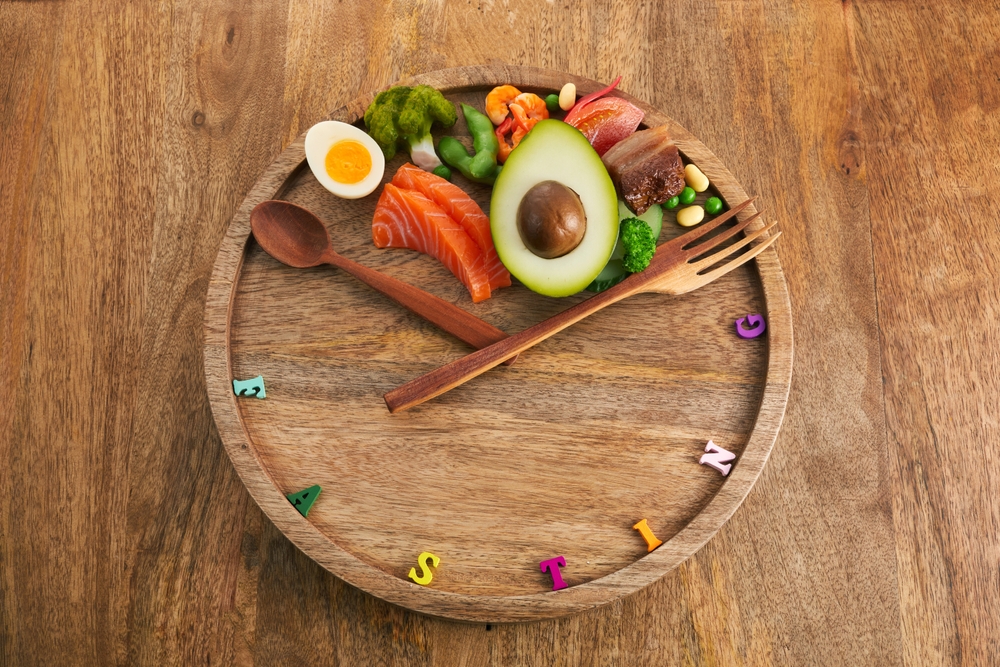
Intermittent fasting has become a go-to for anyone looking to improve metabolism, burn fat, or optimize health. The basic premise is simple: you cycle between periods of eating and fasting, allowing your body to rest and reset between meals. Research has shown that this practice can improve insulin sensitivity, promote weight loss, and even extend lifespan. It’s a trend that’s both practical and easy to implement without restrictive diets or intense exercise regimens.
But it’s not a one-size-fits-all approach, and people’s experiences with fasting vary. Some thrive on it, while others find it harder to adjust. The important thing is to find the window of time that works for your lifestyle and listen to your body as you go.
11. Plant-Based Skincare For Nourished Skin
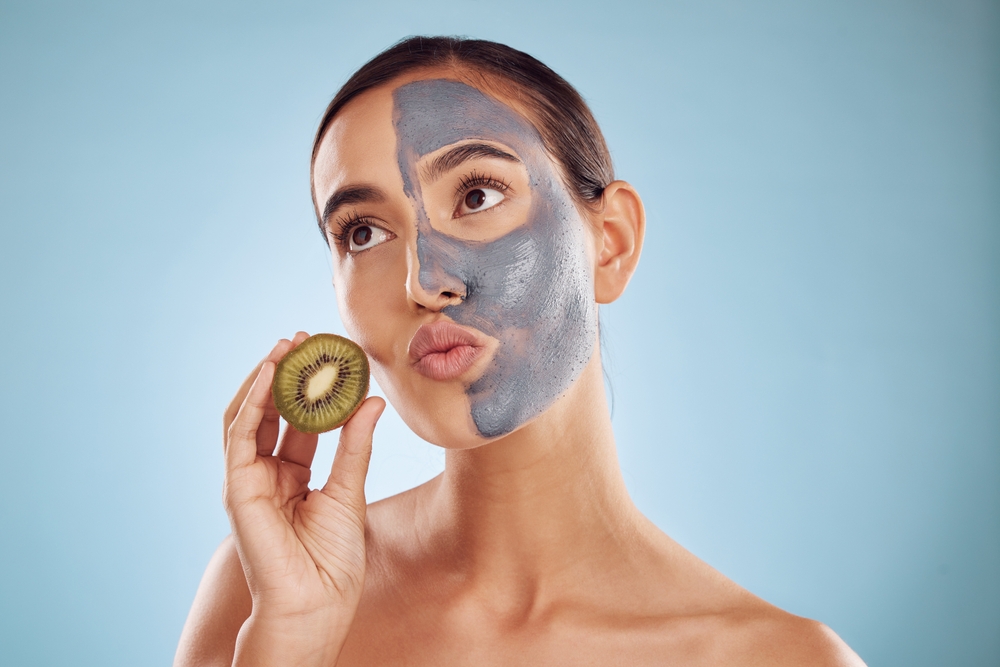
If your skincare routine needs a refresh, consider switching to plant-based products. Brands are now creating everything from serums to face oils packed with nourishing plant extracts like CBD, aloe vera, and chamomile. These ingredients not only promote healthy skin but also reduce inflammation and provide hydration. People are increasingly opting for clean, green beauty as an alternative to synthetic chemicals, making plant-based skincare a top wellness trend.
This shift to plant-based products isn’t just about luxury—it’s about aligning with a more sustainable, conscious way of caring for your body. Organic, cruelty-free, and toxin-free products are increasingly popular, with more people opting for skincare routines that promote long-term health without harming the environment. It’s beauty with a conscience, and it’s about time.
12. At-Home Infrared Saunas For Detox And Relaxation
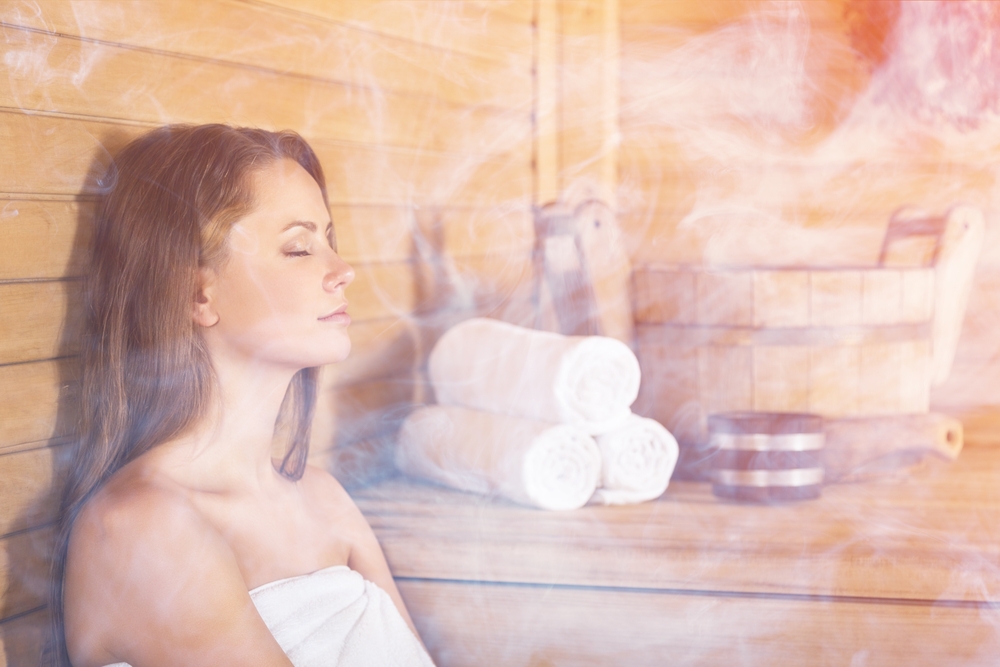
Infrared saunas have been used for decades in spas, but now you can have the experience in the comfort of your own home. These saunas use infrared light to penetrate the skin, promoting detoxification, relaxation, and muscle recovery. They’ve been shown to improve circulation, reduce stress, and even aid in weight loss by boosting your metabolism. The best part? You don’t need to schedule a spa day to enjoy these benefits—you can easily incorporate them into your daily wellness routine.
At-home infrared saunas are available in different sizes and price ranges, making them accessible for various budgets. Regular use can lead to glowing skin, reduced muscle tension, and overall relaxation. It’s the perfect way to unwind after a long day, plus, it’s a great addition to any post-workout recovery routine.
13. Guided Meditation For Enhanced Mental Clarity
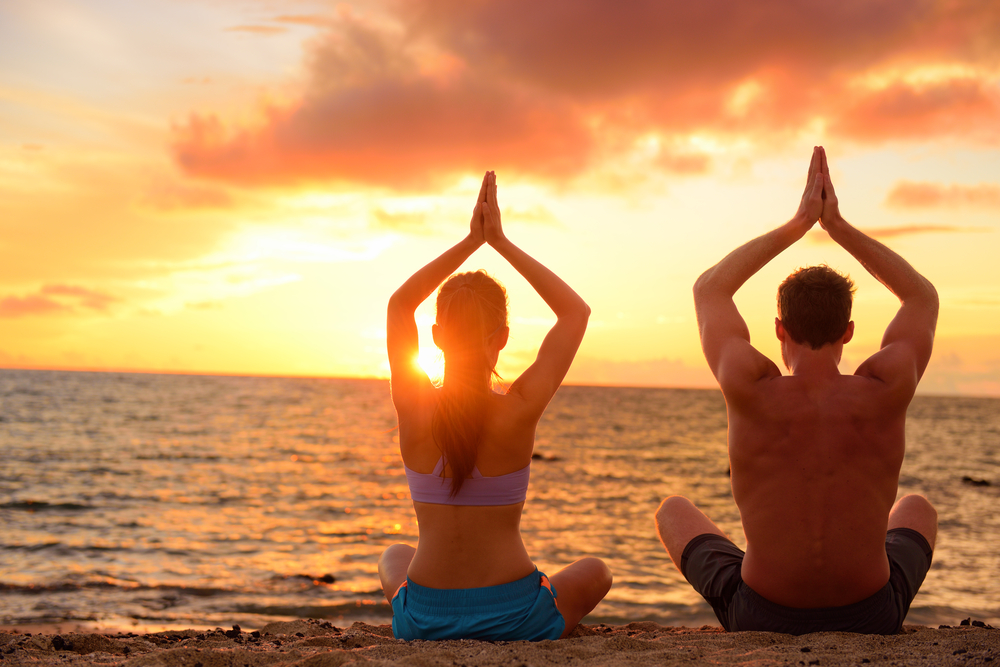
Meditation isn’t new, but guided sessions are becoming more popular as a way to deepen your practice. These sessions take you through a series of visualizations, affirmations, and breathing exercises to guide you into a deeply relaxed and focused state. It’s a mental reset, helping to clear the noise in your head and bring clarity to your thoughts. With more apps and online platforms offering guided meditation, it’s easier than ever to integrate into your routine.
What’s great about guided meditation is that it’s accessible, even if you’re new to the practice. Whether it’s a 5-minute morning ritual or a 30-minute session before bed, you’ll start to notice improvements in focus, stress reduction, and emotional well-being. It’s like hitting the reset button for your mind.
14. Biohacking For Peak Performance

Biohacking has taken the wellness world by storm, with people exploring ways to optimize their body’s performance through a combination of technology, diet, and lifestyle changes. From wearable devices that track sleep and fitness to nootropics that enhance brain function, biohacking is all about fine-tuning your body to be its best version. This can range from using red light therapy for skin rejuvenation to experimenting with different fasting windows for improved metabolism.
The most intriguing aspect of biohacking is its focus on personalized wellness. It’s about understanding your body’s unique needs and adapting your environment to support optimal performance. With advances in wearable tech, this trend is only going to grow as more people look for customized solutions to maximize their potential.
15. Virtual Reality Meditation For Deep Relaxation

If you’ve ever been curious about virtual reality, then you might be surprised to learn that VR is now being used for meditation. Virtual reality meditation immerses you in calming, 3D environments that help reduce stress and increase focus. Whether it’s a peaceful beach, a serene forest, or a quiet mountain top, these immersive experiences have been shown to lower heart rates and improve relaxation. It’s a cutting-edge way to take meditation to the next level and escape the chaos of the outside world.
This trend combines technology with ancient practices, creating a new dimension in mental wellness. The experience can be incredibly calming, providing an opportunity for mental clarity and stress relief that’s more immersive than traditional methods. If you’re someone who finds it hard to disconnect, VR meditation might be your gateway to a deeper sense of peace.

Abisola is a communication specialist with a background in language studies and project management. She believes in the power of words to effectively connect with her audience and address their needs. With her strong foundation in both language and project management, she crafts messages that are not only clear and engaging but also aligned with strategic goals. Whether through content creation, storytelling, or communication planning, Abisola uses her expertise to ensure that her messages resonate and deliver lasting value to her audience.


